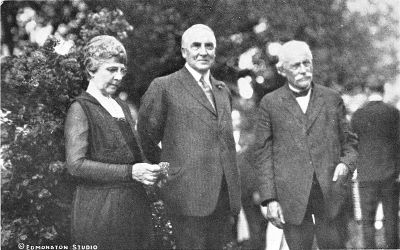Why Did America Embrace Domestic Isolation And Social Conservatism In The 1920S?
The Rise Of Conservatism: Crash Course Us History #41
Keywords searched by users: Why did America turn toward domestic isolation and social conservatism in the 1920s how did the automobile and other new products create a mass-consumption economy in the 1920s?
How And Why Did America Turn Toward Domestic Isolation?
The shift towards domestic isolationism in the United States during the 1930s can be attributed to a confluence of factors, primarily the profound impact of the Great Depression and the lingering memories of significant losses endured during World War I. These circumstances significantly influenced American public sentiment and government policies, propelling the nation towards an isolationist stance. Advocates of isolationism during this period staunchly promoted the idea of avoiding entanglement in both European and Asian conflicts, as well as steering clear of involvement in complex international political affairs. This desire to prioritize national self-sufficiency and avoid overseas entanglements ultimately shaped a pivotal chapter in American history during the early 20th century.
How And Why Did The United States Take A Conservative Turn In The 1920S Quizlet?
What factors contributed to the United States adopting a more conservative stance during the 1920s? This shift towards conservatism was predominantly observed in the realm of national politics. One illustrative instance of this transition occurred when President Woodrow Wilson passed away. Following Wilson’s progressive policies, the Democratic Party nominated James M. Cox as their presidential candidate in an effort to maintain the momentum of progressivism. To better understand this conservative turn, we need to delve into the broader societal and political factors that played a role in shaping this era.
What Was Despite Its Isolationist Position In The 1920S?
Despite its isolationist stance in the 1920s, the United States government actively engaged in international financial matters and played a significant role in determining the allocation of war reparations. This involvement was evident during the Washington Naval Conference held from 1921 to 1922. The primary objective of this conference was to mitigate the escalating naval arms race among major powers, including the United States, Britain, Japan, Italy, and France. Despite its reluctance to become deeply entangled in global affairs, the United States recognized the importance of addressing international issues like arms control and reparations, demonstrating its willingness to collaborate on critical matters despite its overall isolationist tendencies during that era.
Summary 49 Why did America turn toward domestic isolation and social conservatism in the 1920s



Categories: Details 74 Why Did America Turn Toward Domestic Isolation And Social Conservatism In The 1920S
See more here: cookkim.com

Americans turned toward domestic isolation and social conservatism in the 1920s because of the red scare. Many people used the red scare to break the backs of all struggling unions. Isolationist Americans had did not have a lot of hope in the 1920s. There began to be a large amount of immigrants flowing into the US.During the 1930s, the combination of the Great Depression and the memory of tragic losses in World War I contributed to pushing American public opinion and policy toward isolationism. Isolationists advocated non-involvement in European and Asian conflicts and non-entanglement in international politics.
Learn more about the topic Why did America turn toward domestic isolation and social conservatism in the 1920s.
- Chapter 31 Essential Questions Essay – 1072 Words | Bartleby
- APUSH CHP.31 AWYHL Flashcards
- Milestones: 1937-1945 – American Isolationism in the 1930s
- chapter 21 Flashcards – Quizlet
- Details, Details, Details… – mr robs ap us history
- How And Why Did America Turn Toward Domestic Isolation And …
See more: https://cookkim.com/category/guide/